This special issue of the Community Development Journal will focus on the ethical dimensions of community development practice. Ethics as a topic is about matters of rights, responsibilities, harms and benefits. It draws attention to the intersection between human agency and the structural forces that shape the context for community development. It also foregrounds the cognitive and emotional work involved in identifying the ethical issues embedded in the politics and practice of community development, in deciding what is right and in being a just, compassionate and trustworthy practitioner.
While these features of community development work are present in practitioner dialogue and literature, often they are not highlighted and named as ‘ethical’ per se. The community development literature, while emphasising the value-based nature of the work, and the tensions, contradictions and dilemmas of everyday practice, tends to frame these issues in terms of politics and power relations, and/or practical skills and methods.
In this special issue, we aim to examine community development work specifically through an ethical lens. This brings the opportunity to connect with broader thinking and literature in moral philosophy, applied and professional ethics. It offers the chance to reflect on the traditional focus of community development on politics, and debate whether applying an ethical lens provides valuable insights, or amounts to a dangerous move towards elite professionalism and individual practitioner responsibility.
This call for papers comes at a time when professionalising trends are apparent in community development, and some professional/occupational groups have produced professional standards and codes of ethics. It also comes at a time when the impact of Covid-19 worldwide has highlighted and exacerbated existing inequities of wealth, status and power, showing the need for, and value of, community-based solidarity supported by value-based community development work.
These trends raise perennial questions in new contexts about what should be the roles and responsibilities of community development workers and how they should mediate between states and citizens in a post-pandemic world. How should community development workers respond to the impacts of populism, climate change, and identity-based protests at a community level? How do they handle the ethical tensions and dilemmas in their daily work, between the conflicting rights of different people/groups, including balancing employer demands with citizen control; or achieving effective social change while maximising participation?
Contributions to the special issue may address, but are not limited to, the following themes:
The relationship between politics and ethics in community development work.
Insights from moral philosophy, applied and professional ethics, including theoretical approaches and ethical theories such as utilitarianism, the ethics of care or existential ethics.
Debates how about ‘ethics’ is constructed as a topic area, and the role of culture and religion. Who decides what is ethically right and good in a community development context?
Debates about professionalization and professionalism in community development. Is community development work a profession and should it have a code of ethics?
Everyday ethical dilemmas and challenges in community development work, e.g. issues of confidentiality, individual versus collective consent, conflicting accountabilities, the rights and wrongs of engaging in whistleblowing and violent protest.
Contributions can be articles of 5,000-7,000 words, or shorter case studies of an ethical challenge in a practice situation (1,500-3,000 words).
We particularly encourage contributions from, and will endeavour to work with, people based in the Global South.
Abstracts
Potential contributors should send an abstract of up to 500 words with a title, an outline of the rationale, scope and content of the article/case study to s.j.banks@durham.ac.uk by 30 June 2021.
The name of the author(s) should be supplied, including full contact details. Abstracts will be reviewed by the Special Issue team, and potential contributors notified by 31 July 2021.
Full articles/case studies
Shortlisted authors will be invited to submit their first full version by 31 January 2022, with final versions to be completed by 31 May 2022. Submissions should follow the journal’s style guidelines, which can be found here.
If your abstract is shortlisted, this does not guarantee publication of the article in the special issue. Submissions will be refereed in the usual way, which means some may be rejected and some may require revisions. We will endeavour to place all accepted articles in the special issue, but if this is full, then some articles may be placed in another issue of the journal.
It is anticipated that the special issue articles will be published online in October/November 2022, with the full special issue published in print format in January 2023.
If you have any queries, please contact one of the editors:
Sarah Banks, s.j.banks@durham.ac.uk
Pradeep Narayanan, pradeepn@praxisindia.org
Lynda Shevellar, l.shevellar@uq.edu.au

